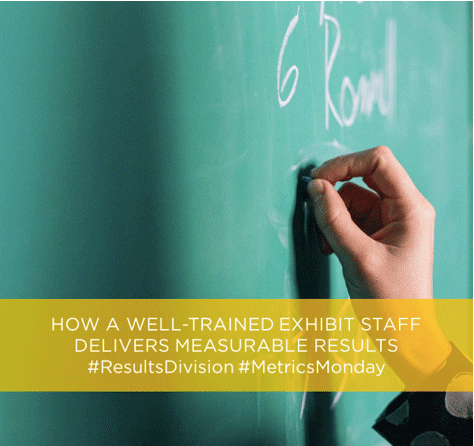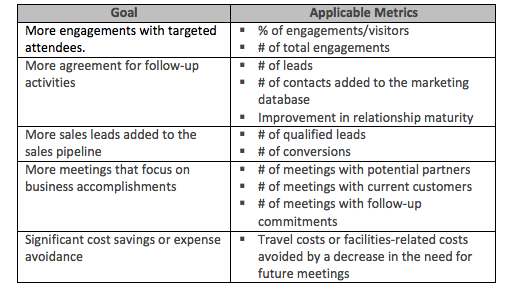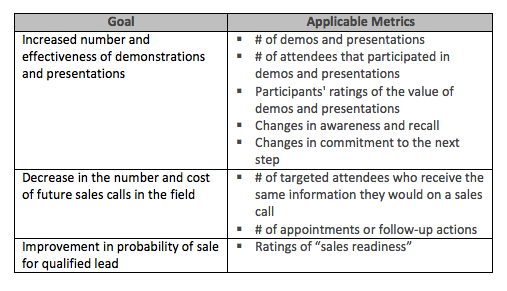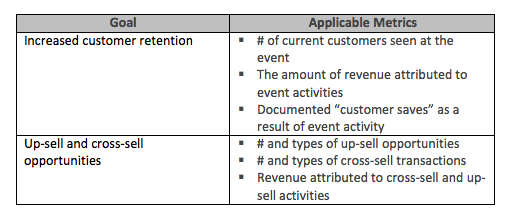 Experienced event managers know that without a knowledgeable, well-trained booth staff working each trade show, the opportunity for program success can be diminished. But what are the actual contributions gained by taking the time to implement an effective training session for everyone who will represent your company on the show floor?
Experienced event managers know that without a knowledgeable, well-trained booth staff working each trade show, the opportunity for program success can be diminished. But what are the actual contributions gained by taking the time to implement an effective training session for everyone who will represent your company on the show floor?
The following is a list of contributions that can be used to provide a set of metrics for valuation for trade show ROI, as well as a planning guide for your staff. A well-defined orientation and training session will lead directly to increased effectiveness and help meet the following goals.
1. High-Value Contact Engagement

2. Marketing Communication
A well-trained exhibit staff provides a consistent “story,” told in its intended context.
3. Presentations, Demonstrations and Product Showcasing
Presentations and interactive demonstrations may be expensive, but significant reward and cost savings can result from the investment. The payback is determined by how well the staff utilizes these tools so training is essential.

4. Customer Relationship Management

5. Additional Staff Related Accomplishments
An exhibit staff can be trained on other practices and procedures such as:
- Protecting competitive intelligence
- Gathering competitive intelligence
- Other business improvement and recruitment interactions with valuable contacts such as suppliers, channels, press, industry analysts and others
These accomplishments and their measures represent just a few of the many ways you can substantiate the time and cost of training your staff to be effective at every event.
A common concern echoed by many exhibit managers is, “Our sales people are so experienced, they will not participate in exhibit staff training.” In practice, well-conceived training is most often praised by top level sales people and sales executives. They recognize that working a trade show exhibit is not the same as making a personal visit or even a phone call where participants and the facts are known beforehand. And, since messaging and featured products or services often change based on the target audience at a particular show, it is important that everyone feels confident that they are appropriately supporting the brand and communicating the correct information.
Use this guide to plan your staff training, as well as justify your company’s investment in qualitative and quantitative terms. An effectively trained exhibit staff produces results that you can prove and allows you, the event manager, to be seen as a true contributor to the success of your company. For more information about the training your staff and measuring results, contact Exhibitus Results Division today.

